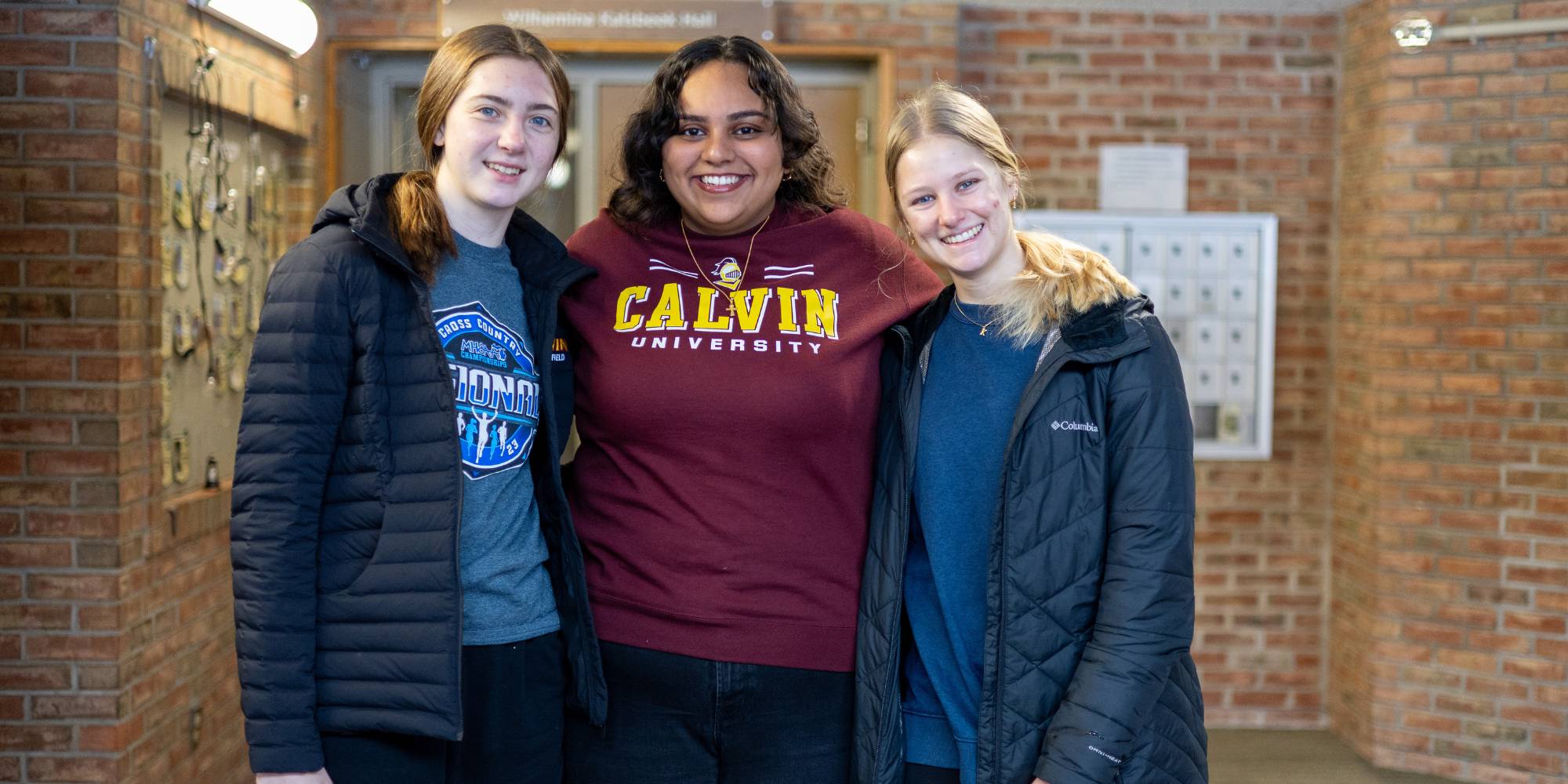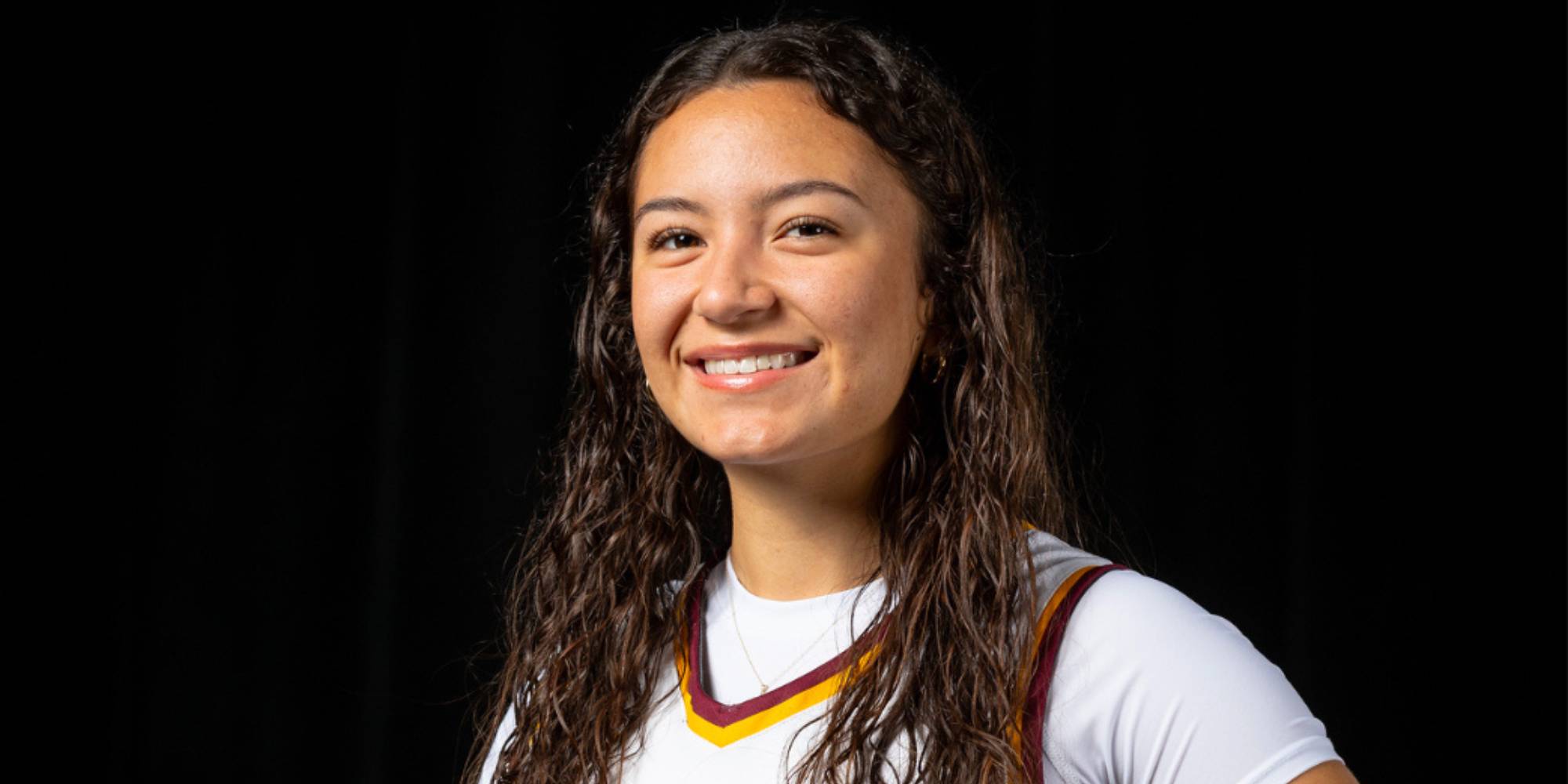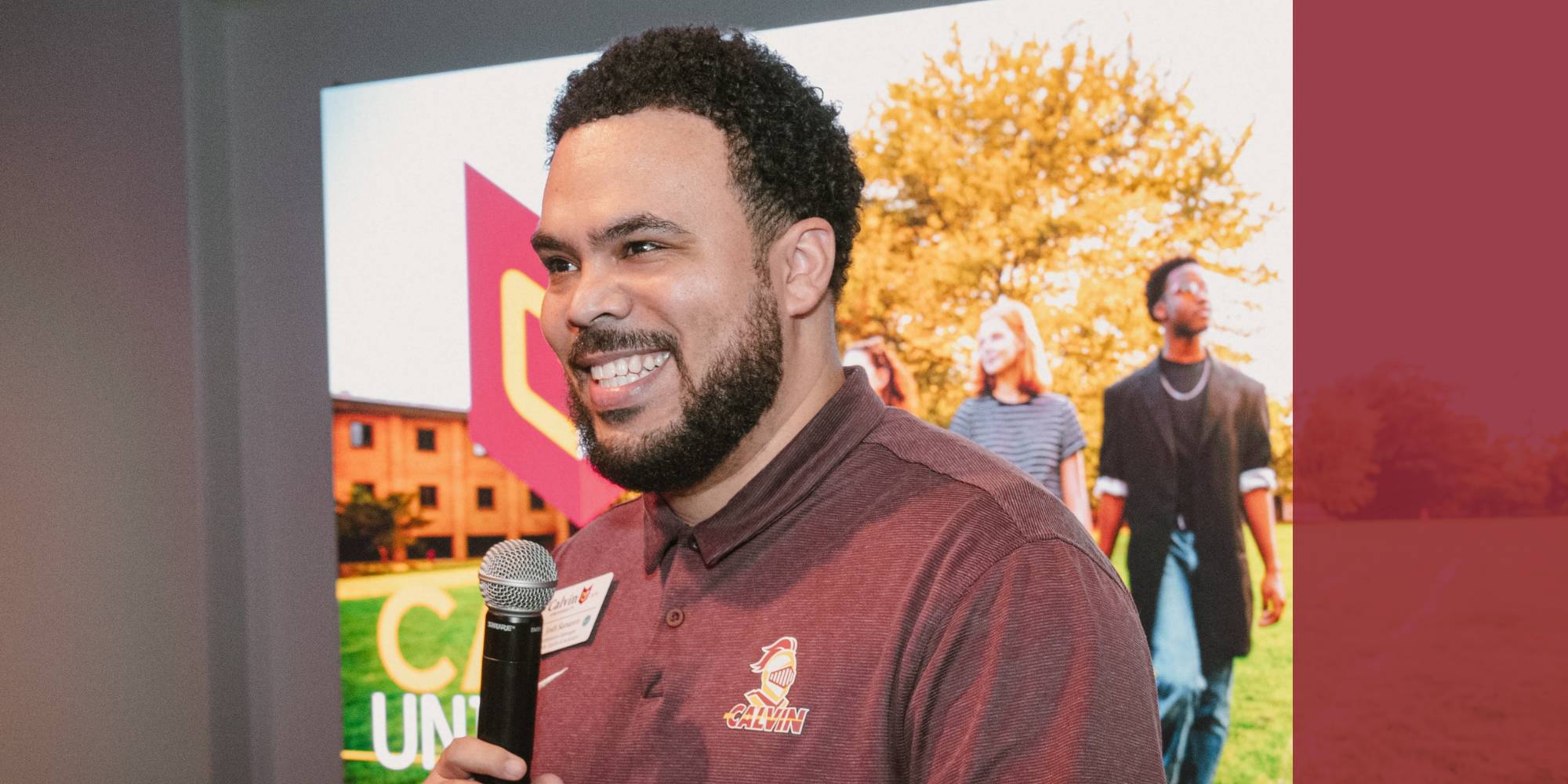Creating a space where all students belong and thrive

During UnLearn Week in October, Josh Samarco (left) moderates a student panel with Nadia Soler, Helen Lee, Laila Smith, Caynon Love, Joshua Park, and Chloe Kottwitz.
“It’s always been a part of God’s call for me to give back, to mentor young people.”
At age 17, Josh Samarco surrendered his life to Christ. “I prayed to God, ‘if you ever saw fit for me to pour into young people, I would love to do that.’”
For the past 14 years, from pastoral ministry in South Carolina to working in higher education in Michigan, and coaching high school basketball, Samarco has done just that.
His why? “When I was a teenager, I made some poor choices. I was really lost and had a very negative outlook on my own future and then God sent someone into my life, a mentor, a basketball coach who had a similar story [to mine],” said Samarco. “He helped me gain a new trajectory on life.”
Now Samarco is at Calvin University, where he is the director of the Center for Intercultural Student Development. The office’s mission is to help domestic BIPOC and international students find their place and thrive at Calvin.
First things first
“What I’ve learned so far is the first year [of a student’s experience] is so important,” said Samarco, who is just nine months into his new role. “It really sets the precedent for the student experience.”
Samarco was a first-generation college student and has recently spent time reflecting back on his own college journey.

“The under-resourcing and lack of awareness that oftentimes parents or guardians may have who don’t have a college experience to reflect back on, leads to their students playing catch up or not knowing about something until they experience it and then it’s too late and it can bring on a sense of shame,” said Samarco. “It can lead to people suffering in silence and burying things until they are drowning.”
Offering support from the start
What Samarco is appreciating at Calvin is the university’s proactive approach from the start. “Even in admissions, on the website, and on social media, prospective students and families are seeing Calvin as a place where first-gen students have many resources set up to help them thrive.”
While Samarco can point to many practical resources the university has to help students from many different cultures navigate a new space, what he and his team are pushing for most is to help students feel a sense of belonging, like they can bring their whole selves into their college experience.
“When Diversity, Equity, Inclusion, and Belonging work is thriving you see a plethora of difference coming to the table, a respected difference at the table, whether comfortable or uncomfortable, but you feel heard at a table and maybe that’s a table you’ve never been invited to before, but you find yourself there with people from different political backgrounds, socioeconomic classes, and you witness something you haven’t seen before,” said Samarco. “Maybe you come from a monolithic culture and now you are in a multiethnic culture. This might be the first time you feel heard and feel like you belong, that you can contribute to a conversation without being shut down. The first time you experience this, you say to yourself, ‘wow, I never knew this existed. I never knew I could lean into this type of community.’” And Calvin, for many, has provided these types of spaces for belonging.
Becoming leaders of leaders
Samarco and the CISD team are helping others to experience that too. In fact, he points to the makeup of his team as an indicator that something’s working. Many of the CISD staff were once student leaders at Calvin. And the students they serve now continue to lead future generations of students.

“Our Calvin student leaders who are rising sophomores, juniors, and seniors that serve in the CISD, they are helping our new students be welcomed to Calvin,” said Samarco. “So, before classes start, before they get some of their books, they are diving deep into relationships because of CISD’s BIPOC and International Welcome Orientation. Our student leaders are checking in, showing up to dorms, texting, staying up late at night to listen. They are in essence saying you are not alone; we are here to walk alongside you on this journey.”
Discovering belonging in community
“One of our greatest witnesses is our withness,” said Samarco. “I’m not projecting to try and transform you, only the Holy Spirit can do that, but let me come alongside you, come alongside me, and out of this we will cultivate relationships that God designed for us.”
Samarco says this community-building takes time, involves tension and hard conversations. But, in the end, it’s very rewarding.
“This is a place where you can wrestle with big concepts about God, the world, politics, and not be pushed away, but rather be invited in and that’s what’s needed in the DEIB work of today’s world,” said Samarco. “No matter where you are from, you belong right here in this conversation, whether or not you feel comfortable. And as we continue to lean into uncomfortable and hospitable spaces, it will create beautiful tapestry and relationships.”









